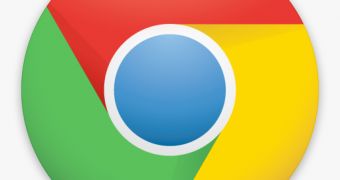The stable version of Google Chrome 13 has been released. It's a bit behind schedule, but it's here at last. The main selling point of the latest version, as far as Google is concerned, is Instant Pages a feature that prefetches websites, by predicting what users are going to click on.
The Omnibox itself has gotten some improvements which could prove useful in some cases.
Google Chrome 13 also adds an eagerly awaited, by some people, print-preview feature, powered by the built-in PDF reader.
Instant Pages
"Today, we’re happy to let you know that Instant Pages is on by default in the latest stable version of Chrome," Timo Burkard, software engineer at Google, wrote.
"This means that sometimes when you click a Google search result in Chrome, the page will appear to load much faster than before," he added. Google Chrome uses a prerendering technology to load and render a page in the background. If the algorithm predicts that you are very likely to click on the first result offered by the Google.com, that page is loaded. The feature can be made to work with any website, in theory, as long as they implement support for it.
Depending on how fast you type and how fast the page is, it may already be loaded by the time you click or press Enter, making it appear as the page has loaded instantly.
Print preview
"We’re also really excited to announce that print preview is available for Windows and Linux users in the latest stable version of Chrome," Burkard added.
This feature has been requested ever since Chrome debuted. Granted, many other features have been 'missing' from Google Chrome, but the team always focused on speed and simplicity, avoiding feature bloat.
But there was a crowd of people who kept on requesting the feature and Google relented, especially now that Chrome comes with a PDF viewer, which can render the print previews as well.
Partial match in the Omnibox
"The omnibox, Chrome’s combination search box and address bar, has gotten much smarter in the latest release, making it even easier for you to get back to pages you’ve visited before," Google added.
This addition makes it easier to find pages you've visited already. Chrome can do partial matching and looks inside words and URLs to find the portions of text you type.
This is great if you can't remember exactly a page's name, but it can also mean a lot more clutter in the Omnibox suggestions, sometimes with frustrating results.
Typing a single letter, for example, can reveal a myriad of results that don't really have anything to do with what you wanted to find. Google Chrome for Windows is available for download here. Google Chrome for Linux is available for download here. Google Chrome for Mac is available for download here.

 14 DAY TRIAL //
14 DAY TRIAL //